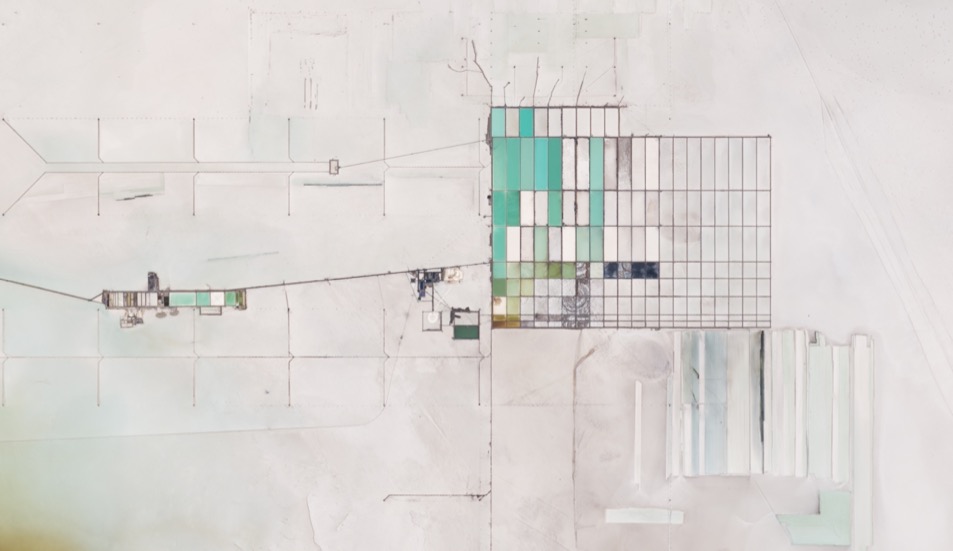NIO Plans To Enter US Market In 2025, May Introduce Battery Swap Stations

Informed sources tell ElectricVehicles.com that NIO plans to begin selling cars in the US in 2025. Last weekend, NIO CEO William Li paid a visit to the company’s Research And Innovation Center in San Jose, California, where the company is currently testing its autonomous driving systems. Those sources say NIO is building a battery swapping station behind its US headquarters to test the technology in the US. The prototype station will be in operation before the end of this year.
Last month, it posted job vacancies in the US for a head of construction and user infrastructure, and a project manager for architecture and interiors as part of a plan to introduce NIO Houses to the US. They are not sales locations. Instead they are experience centers that feature a Living Room where potential customers can relax and meet like-minded people, a Lab with meeting rooms and shared workspace, a Library, a Forums space to spark ideas and inspiration, a NIO Café, and a Joy Camp dedicated to kids. NIO has posted openings for a senior real estate manager to be responsible for the “site selection and negotiation of lease terms for new locations for future NIO Houses.” In total, the company is currently advertising for 60 positions, many of them for engineers.
A US Factory
As CleanTechnica reported in May, NIO is rumored to be planning a US factory — something that will be critical to avoiding US import tariffs and qualifying for federal tax credits, assuming the company can meet the strict battery materials provisions that are part of the Inflation Reduction Act.
NIO chairman William Li said during the company’s NIO Day in 2021 that there are plans in the making to introduce its electric cars into 25 world markets. It is already selling cars in Norway and will be selling them in Germany, Denmark, Sweden, and the Netherlands by the end of this year. After that, Austria, Belgium, France, Hungary, Italy, Spain, Switzerland, Portugal, and the Czech Republic are on the agenda. According to a map displayed during that presentation, the United States, Australia, and Japan are also on NIO’s agenda.
Earlier this year, NIO agreed to lease a new building with 201,500 square-foot until January 2032. It will be used to support research and digital development, testing, assembly, warehousing, and company operations.
NIO Battery Swapping Stations
Image courtesy NIO
” data-medium-file=”https://cleantechnica.com/files/2021/09/NIO-Power-Swap-400×267.jpg” data-large-file=”https://cleantechnica.com/files/2021/09/NIO-Power-Swap-800×533.jpg” loading=”lazy” class=”size-full wp-image-247700″ src=”https://cleantechnica.com/files/2021/09/NIO-Power-Swap.jpg” alt=”NIO Battery Swapping Station Sinopec” width=”1600″ height=”1066″ srcset=”https://cleantechnica.com/files/2021/09/NIO-Power-Swap.jpg 1600w, https://cleantechnica.com/files/2021/09/NIO-Power-Swap-400×267.jpg 400w, https://cleantechnica.com/files/2021/09/NIO-Power-Swap-800×533.jpg 800w, https://cleantechnica.com/files/2021/09/NIO-Power-Swap-768×512.jpg 768w, https://cleantechnica.com/files/2021/09/NIO-Power-Swap-1536×1023.jpg 1536w” sizes=”(max-width: 1600px) 100vw, 1600px”>
Image courtesy NIO
One of the distinctive features of the NIO experience is its emphasis on battery swapping. Almost unknown in North America, it is proving popular in China, where NIO already has hundreds of automated battery swap stations. It has also begun building swap stations in Norway. Clearly, battery swapping for NIO is similar to Tesla’s idea of building a robust Supercharger network.
The process takes 5 minutes or less, which is great news for EV drivers in a hurry, but there are other benefits. Customers not only get a fully charged battery in record time, they also always have a battery with the latest technology installed in their cars. No worries about getting stuck with a huge bill if the battery fails. And drivers can select the size battery they need. If they are doing daily commuting, a 40 kWh battery may be ample and cheaper than a larger battery.
If it’s time to pack the family into the car and head out on vacation, drivers are free to upgrade to a larger battery with more range. NIO now offers a 100 kWh battery for those who are willing to pay extra for it. How many times have EV drivers wished they could add 30 kWh to their cars on a temporary basis before heading out on a long trip?
There is no guarantee battery swapping will prove popular in the US, but it might, if Nio has its way. It sounds a little weird when you first think about it but its advantages may just win over skeptics. Would you do business with a company that makes it easy to swap the battery in your car? Let us know in the comments section below.
The Takeaway
All of us want to see the power of competition bring less expensive electric cars to market, but will Americans cotton to the idea of buying a car from a Chinese company? There is a lot of negative press about China these days as hostilities between the US and China get increasingly loud and angry. Yet there are already cars made in China being sold in the US by some well known brands and no one seems to mind.
Nio is known for making careful business plans and then sticking to them. If it is planing to enter the US market, it is not on a whim. Any headwinds it encounters will probably be political rather than technical. Can it disrupt the disruptors? It very well might.
Appreciate CleanTechnica’s originality and cleantech news coverage? Consider becoming a CleanTechnica Member, Supporter, Technician, or Ambassador — or a patron on Patreon.
Don’t want to miss a cleantech story? Sign up for daily news updates from CleanTechnica on email. Or follow us on Google News!
Have a tip for CleanTechnica, want to advertise, or want to suggest a guest for our CleanTech Talk podcast? Contact us here.
Advertisement
This post has been syndicated from a third-party source. View the original article here.




